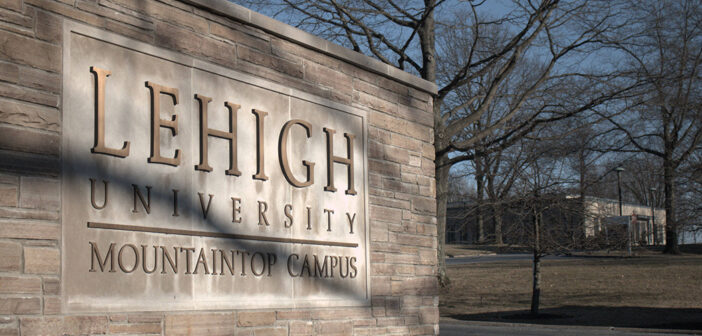To better understand neurodegenerative diseases, a group of Lehigh student researchers are conducting experiments on fruit flies in the Babcock Lab under the direction of Dr. Daniel Babcock.
Central to their research is determining what makes specific neurons vulnerable and others resistant to neurological diseases to better understand treatments for these ailments.
A central tenet of neurodegenerative diseases is neuron death and degeneration, however, before the point of death, these neurons degrade and deteriorate.
The beginning stages of neuron deterioration are what contribute to the early signs of Parkinson’s disease, a neurodegenerative disease characterized by a dopamine deficiency and degeneration of the basal ganglia.
Babcock said that while people have been trying to cure neurodegenerative diseases, part of the reason why they have not been successful is because they are looking at the diseases once they have progressed too far.
“Once we find those differences, the goal is to make those cells that are vulnerable more like the healthy ones,” Babcock said.
Through their research and testing of fruit flies, the lab is hoping to aid in the discovery of a cure for neurodegenerative diseases.
“The end goal of our work is to gain an understanding of how neurons and synapses degenerate in these progressive diseases,” said Jessica Sidisky, a graduate student working in the lab. “We ultimately hope that our results will contribute to clinical applications and new treatments.”
The lab, which opened in the fall of 2016, is conducting their research by injecting neurons with different models to further their discovery. Babcock said the lab is using fruit flies because it is relatively easy to manipulate their nervous systems.
Aside from research on possible cures and treatments, the researchers are also trying to understand why certain neurons are affected in Parkinson’s versus other neurological diseases, such as ALS and Huntington’s.
“We don’t know why certain cells die in a particular disease, but a different one dies in another,” Babcock said.
Lily Guggenheimer, ‘23, another member of the research team, said they are working with Drosophila to study dopamine clusters with information that they gather when they dissect brains.
“We are trying to correlate it and relate it to Parkinson’s disease and the degeneration of dopamine neurons,” Guggenheimer said.
Guggenheimer said the lab’s efforts will aid in the understanding of neurodegenerative diseases through the acquisition of more information.
“I imagine it like a pipeline, the beginning is just exploratory stuff, and the end of it is the drug that cures Parkinson’s disease or the procedure that actually cures a patient,” Babcock said. “I think that where I fit in is towards the beginning of the pipeline.”
Jacinta Davis, another graduate student working in the lab, said the team has made interesting discoveries involving narrowing down the locations of certain dopamine neurons in the brain. Davis said that fruit flies have thousands of neurons in their brains but they have been able to narrow down a couple of interest to study further.






Comment policy
Comments posted to The Brown and White website are reviewed by a moderator before being approved. Incendiary speech or harassing language, including comments targeted at individuals, may be deemed unacceptable and not published. Spam and other soliciting will also be declined.
The Brown and White also reserves the right to not publish entirely anonymous comments.
1 Comment
My mother was diagnosed with ALS in May 2016. Her doctor put her on riluzole, letting her know there was no cure but the medication might provide her a few more months of delayed symptoms. ALS progresses at different rates and affects different body parts first. My mother, being 73 at the time, fell into a category of what they call “fast progression” (older female). Her arms weakened first, then her hands, her mouth, and throat, and finally her lungs. Throughout her two-and-a-half-year ordeal, she was able to walk with assistance nothing was really working to help her condition.I took her off the riluzole (with the doctor’s knowledge) and started her on amyotrophic lateral sclerosis herbal formula i ordered from Health Herbal Clinic, her symptoms totally declined over a 5 weeks use of the ALS disease natural herbal formula. She’s now almost 75 and doing very well, the disease is totally reversed!! Contact Dr. via : Drayabaoloyeerelu@gmail.com